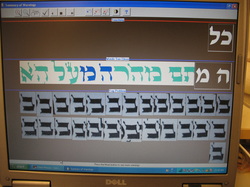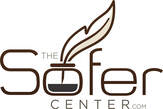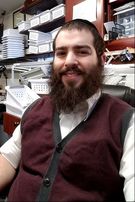 Maintaining regular use. A Torah scroll should be read from regularly for the weekly reading or at least rolled to a different section on a regular basis to prevent the ink from fading and cracking. Using a Torah scroll exclusively for the reading of Rosh Chodesh for example will not suffice, even though it is used monthly. Here are a few suggested ideas. - Use a different Torah scroll for each of the four weekly readings (Monday mornings, Thursday morning Shabbos morning and Shabbos afternoon). -Set up a rolling schedule for those Torah scrolls not used for the weekly reading so that they are rolled from beginning to end each year. -Some Shuls rotate Torah scrolls on a yearly basis. However, this is not the most recommended program especially if the Shul has a number of Torah scrolls in the rotation. If the Halachic level of the Torah scrolls vary, consult a Rav if (and when) one should use the less Halachicaly preferred Torah scrolls in a rotation program. Proper care of the Torah scroll Sifrei Torah should ideally be housed in an Aron Kodesh or room in which a cool comfortable temperature is maintained and the humidity is regulated to approximately 40%. Wood is an excellent insulator. There should also be openings for proper airflow. Many Shuls house their Sifrei Torah in a large safe due to insurance requirements or to prevent theft. In such a case, it is imperative that the recommended humidity level is maintained and that there is proper ventilation. Care must be taken on Simchas Torah that the Sifrei Torah do not become moist from sweat. Plastic can be placed between the mantle and the klaf (parchment). When reading the Torah the reader should not put the Yad (pointer) on the klaf itself. Instead, he should hold it slightly above the Sefer Torah to prevent it from scratching the letters. One who is called to the Torah should not touch his Talis or the Torah gartle (belt) to the actual writing but to the margin at the beginning of the line. A gartle that closes with plastic clips of Velcro is preferred to metal clasps as they can dig in the parchment.
0 Comments
 Computer checkingIn addition to a Sofers examination, we strongly recommended you to have a computer checking done as well. Although examiners do the best they can, humans can make mistakes which the computer can catch. However, it is not a substitute for the manual examination, for although the computer can successfully catch missing and substituted letters, it can not determine letters with a problematic shape if they are Kosher or not, or do the actual repairs if necessary. This can only be accomplished through a meticulous manual examination by a qualified Sofer. The cost for a computer examination is minimal and a one time expense. If you have never had your Teffilin or Mezuzos computer checked, it is advisable to do so the next time you have them examined. |
Categories
All
AuthorRabbi Kass was ordained by Rabbi Yisrael Meir Lau, former Ashkenazik Chief Rabbi of Israel. He is certified as a Sofer for both Kesivah and Hagoah by one of the leading experts in Safrus, Rabbi Avrohom Tzvi Vosner, Rav of the Vad Mishmeres Sta”m. Archives
March 2018
|
What our clients say about us: |
To enhance our service quality, we operate on an appointment-only basis.
Please contact us to make an appointment. $12.99 Flat rate shipping! Mezuzahs, Tefillin & Accessories! |
|






